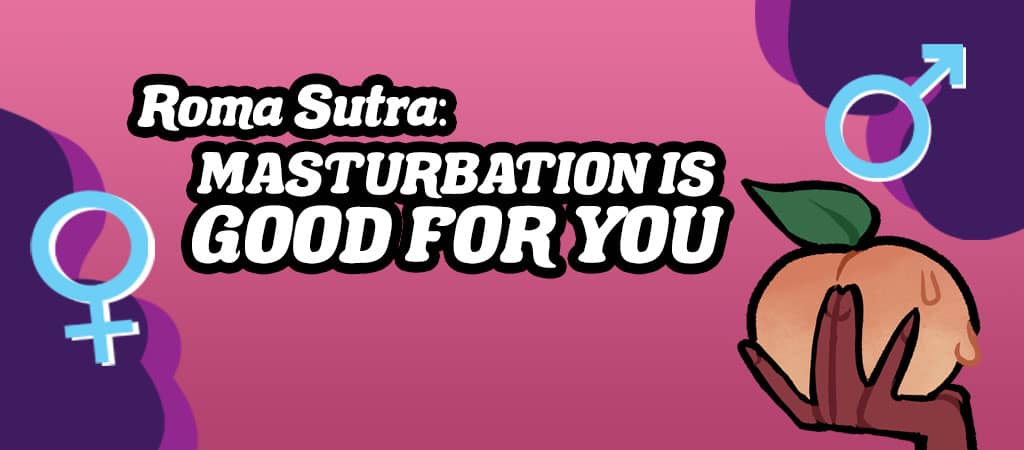
Did you know that graham crackers and corn flakes were invented to stop you from masturbating? Sylvester Graham was a minister who believed bland food would “cure” masturbation and sexual desire, which he thought caused a variety of physical and mental diseases. So, he invented and worked to popularize a flavorless wheat cracker, which was much less sweet and much more difficult to chew than the graham cracker we know today. His followers, known as “Grahamites,” included John Harvey Kellogg, who invented corn flakes with the same goal of being bland and boring to discourage, as John Money puts it in his book on the topic, “the fallacious disease of masturbation.”
Kellogg and Graham were wrong not just about the food they invented, but about their beliefs that masturbation was linked to harmful conditions like headaches, epilepsy, and psychosis. However, they are a part of the long history of stigmatizing masturbation, which does have harmful effects. There is nothing wrong, bad, or gross about healthy masturbation, yet it is a topic that carries even more taboo than other sexual activity. In contrast to what the Grahamites said, masturbation is a safe form of sexual expression that can actually be good for you in a variety of ways.
The History of the American Stigmatization of Masturbation
Masturbation has existed for as long as humans have. The Western stigmatization of masturbation likely has roots in Christianity, as the Church in the Middle Ages decreed that all non-procreative sexual activity, including masturbation, was sinful. The Bible actually never mentions masturbation, but the Church’s insistence that it was a sin was reflected in social norms and even laws in Christian states.
In the 18th century, medicine began to take up the mantle against masturbation. Before medicine fully became the scientific discipline that we know it as today, 18th century medical practitioners posited that masturbation was a dysfunction that caused horrid diseases with grotesque symptoms. Masturbation was linked with being unclean and sexually impotent.
In the 19th century, people tried to prevent masturbation with everything from bland food, exercise, and cold showers to more dangerous techniques such as physical confinement and genital mutilation with leeches, hot irons, and surgery. Circumcision of the penis at birth and even clitoridectomies, surgical removal of the clitoris, were performed in an attempt to reduce sexual desire and masturbation in children.
In the late 19th and early 20th century, there were a few voices that observed that masturbation could have some positive effects, but even then, most thought it was more harmful than beneficial. Famed psychoanalyst Sigmund Freud said that masturbation could cause psychological disorders and had harmful psychosocial effects. Though most 20th century practitioners no longer believed masturbation caused physical disease, scientists who studied sex faced an uphill battle in normalizing the practice. A survey in 1937 showed that 82% of first-year college students believed that masturbation was dangerous.
Though nowadays most people do not link masturbation to disease or mental illness, the stigma around masturbation still exists and has harmful effects. A 1994 study found that half of adults that masturbate feel guilty about it. And that same year, Joycelyn Elders, the first Black and second woman U.S. Surgeon General, was fired by President Bill Clinton just because her public support of teaching masturbation in sex education curriculums caused too much controversy.
The Harm of Masturbatory Guilt
The stigma surrounding masturbation is easily internalized to contribute to people feeling guilty about their sexual activity. Guilt can be a useful emotion when it is teaching us right from wrong, but guilt around masturbation does not do that because healthy masturbation is not harmful to anyone. Instead, internalized guilt about masturbation can just make people feel bad about themselves, their bodies, and their lives without providing any benefit or useful teaching.
While doctors used to contend that masturbation caused disease, case studies show instances where guilt around masturbation is actually linked to erectile dysfunction, impotence, depressive episodes, and other mental illnesses. One study found that women with higher levels of masturbatory guilt who contracted a sexually transmitted infection experienced more emotional stress and were more fearful of telling their sexual partners about the STI than women with less masturbatory guilt. Increased guilt around masturbation and sex in general is also correlated with less positive attitudes towards using contraceptives, which can promote riskier sexual decision-making. People with high levels of masturbatory guilt are understandably less likely to masturbate, but even if they do masturbate, they are less likely to enjoy the physiological and psychological benefits of masturbation.
The Benefits of Masturbation
The most obvious benefits of masturbation are related to a person’s sex life. Masturbation allows sexual release and helps people orgasm more. Married women who masturbate not only have more orgasms but also have higher marital and sexual satisfaction than non-masturbators. During masturbation, people can figure out what feels good for them sexually, and this information can be shared with sexual partners to improve both solo and partnered sexual experiences. Because of these benefits, masturbation is often prescribed as a part of treatment for issues that might arise during sex, such as painful intercourse or trouble orgasming.
Solo sex also carries no risk of transmitting STIs or causing pregnancy. Sexual partners can even masturbate together for low-risk sexual release. And in the midst of a global pandemic that is spread through close contact, multiple public health authorities, from New York City to the University of Georgia, underscore that “you are your safest sex partner.” Physically interacting with sexual partners at this moment could increase the risk of contracting or spreading COVID-19, but masturbation provides sexual release with little to no infectious disease risk.
Physiologically, the hormones released during sexual arousal and orgasm have many positive effects. These hormones can provide stress relief and aid in sleeping. They can also provide pain relief, such as reducing menstrual cramps and even labor pain. Masturbation can also strengthen pelvic and anal muscles, especially for people with vaginas, which can reduce the chances of future urinary incontinence and other health issues.
Furthermore, masturbation is correlated with better body image and higher self-esteem. While guilt and shame can make us feel bad about ourselves, being familiar and comfortable with our bodies and their functions can help us feel more relaxed and confident in our sexual lives and beyond.
The Nuance
While stigmatizing masturbation is harmful to many aspects of our lives and masturbation does have many benefits, the conclusion is not that everybody must masturbate. Like all sexual decisions, the choice to masturbate is a personal one. However, one study found that nearly one-third of college women said the reason that they did not masturbate was because of “shame.” Even a simple Google search of masturbation guilt will yield countless articles of people talking about the shame they have felt around masturbation and how to get over it. Nobody has to masturbate, but shame and guilt can be particularly harmful feelings and poor motivators in sexual decision-making.
If you do not want to masturbate, that is completely normal, too. There is nothing wrong with not having the desire to masturbate. And though people may mean well when they try to encourage their friends to “just try it” or express disbelief at how someone has never masturbated, these actions are equally harmful in the way that they promote shame.
Finally, all the benefits discussed are linked to healthy masturbation. Like everything, masturbation can be done in excess in a way that interferes with or detracts from other parts of life. However, popular culture tends to focus on porn addictions or too much masturbation far more than on the normal and healthy practice of solo sex, which can further the stigma by distorting the issue to imply that all masturbation is problematic.
Does thinking about solo sex make you uncomfortable? When you read the title of this article, did you flinch? The stigmatization of masturbation has a long history that has caused harm that cannot be overcome overnight. But, whether or not you choose to do it, know that masturbation is a healthy and normal practice that can not only feel good, but be good for us, too.

Comments